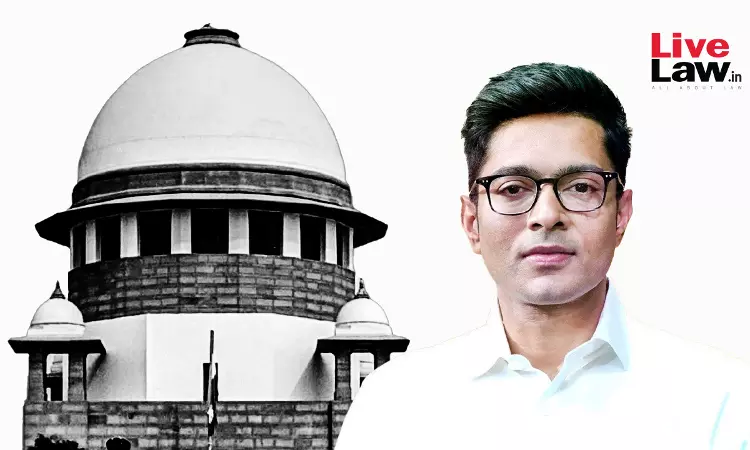Can ED Summon Abhishek Banerjee To Delhi Regarding Jobs Scam Case In Bengal? Supreme Court Continues Hearing
Debby Jain
8 Aug 2024 8:26 PM IST

Next Story
8 Aug 2024 8:26 PM IST
The Supreme Court on Thursday (August 8) continued hearing TMC MP Abhishek Banerjee's plea against ED summons in a school jobs scam case. The crux of the issue is whether the ED could summon Banerjee to Delhi in relation to the school jobs case in West Bengal. Arguments were made on the extent of applicability of the Code of Criminal Procedure (CrPC) to the proceedings under the Prevention...
